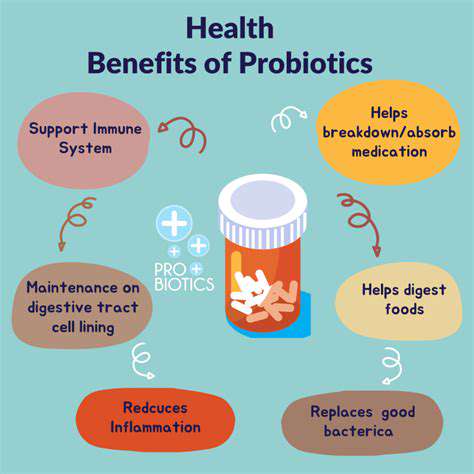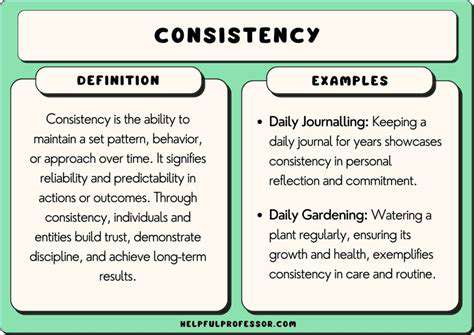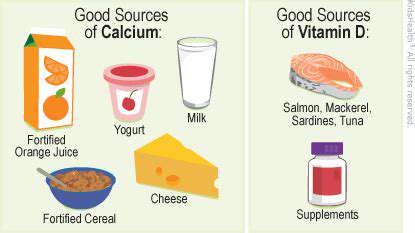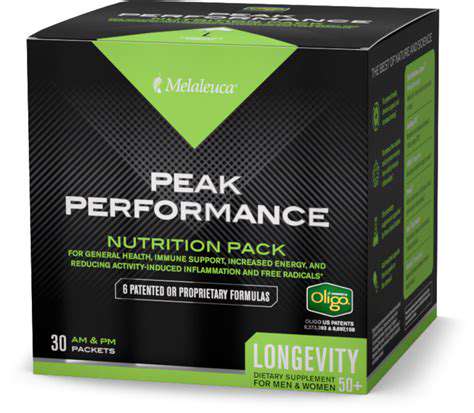How to Build a Balanced Vegetarian Meal Plan
Beyond Meat's Versatility
Plant-based protein sources like Beyond Meat offer a compelling alternative to traditional meat, expanding the possibilities for delicious and nutritious vegetarian meals. Beyond Meat products, whether it's the familiar burgers or innovative sausage alternatives, allow for a wide range of culinary creativity. Their texture and flavor profiles often mimic their animal counterparts, making the transition to a vegetarian diet smoother and more enjoyable. This versatility is key to successfully incorporating plant-based proteins into a balanced meal plan, allowing for diverse recipes and satisfying meal experiences.
Incorporating Beyond Meat into dishes like stir-fries, tacos, or even chili adds a satisfying protein punch without sacrificing flavor. The ability to easily substitute Beyond Meat for traditional meat in many recipes opens up a world of culinary exploration, allowing for the creation of exciting and flavorful vegetarian meals.
Nutritional Considerations
While Beyond Meat provides a valuable source of protein, it's crucial to understand its nutritional profile in the context of a balanced meal plan. Comparing the nutritional content of Beyond Meat products to their animal counterparts is important. Pay close attention to the specific product's ingredients and nutritional information to ensure you're getting adequate amounts of essential nutrients like iron, vitamin B12, and zinc, which might be lower in plant-based protein sources and may need supplementation or careful consideration in your overall diet.
A balanced vegetarian diet often requires careful attention to nutrient density. Beyond Meat, in combination with other plant-based foods, can contribute to a healthy and complete protein intake. However, a vegetarian diet that solely depends on processed plant-based proteins like Beyond Meat may lack crucial nutrients. A diverse approach to meal planning including whole grains, legumes, fruits, and vegetables is essential for a well-rounded vegetarian diet.
Furthermore, understanding the processing methods and ingredients in Beyond Meat products is essential for making informed choices. While offering a convenient alternative, the nutritional value can vary between products, and comparing them to whole, unprocessed foods is crucial to maintaining a balanced intake.
Pairing Beyond Meat with Complementary Foods
To maximize the nutritional benefits and flavor potential of Beyond Meat, pairing it with complementary foods is key. Combining Beyond Meat with whole grains, legumes, and vegetables creates a more complete meal, delivering essential nutrients and a satisfying culinary experience. For example, a Beyond Meat burger on a whole-wheat bun paired with roasted vegetables and a side salad provides a balanced meal incorporating protein, carbohydrates, and healthy fats.
Beyond Meat in Meal Planning for Vegetarians
Incorporating Beyond Meat into a structured meal plan for vegetarians requires careful consideration of portion sizes and overall dietary needs. As with any food, moderation is key. A complete vegetarian meal plan should go beyond simply substituting meat with Beyond Meat. Including a diverse range of vegetables, fruits, whole grains, legumes, and other plant-based protein sources is crucial for a complete and balanced diet.
Consider creating meal plans that incorporate a variety of meals, incorporating Beyond Meat in some dishes, but not relying solely on it for protein sources. This approach ensures a more well-rounded intake of nutrients and prevents potential deficiencies.
Mastering Micronutrients: Vitamins and Minerals
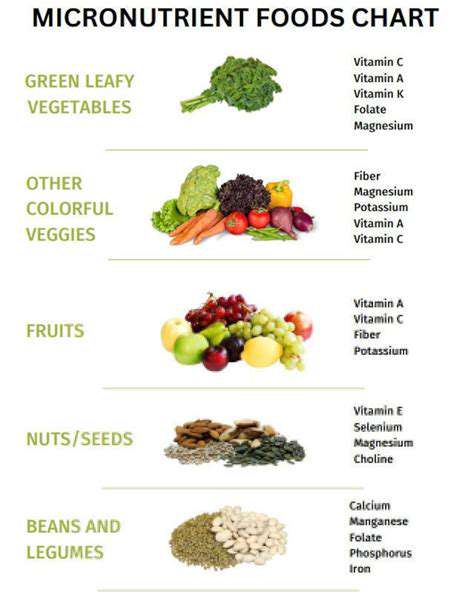
Understanding the Importance of Micronutrients
Micronutrients, while often overshadowed by macronutrients, play a crucial role in maintaining overall health and well-being. These essential vitamins and minerals, required in small quantities, are vital for a wide range of bodily functions, from supporting immune responses to facilitating energy production. Understanding their importance is key to optimizing your health and preventing deficiencies. Without them, many bodily processes can be impaired.
A balanced diet rich in a variety of fruits, vegetables, whole grains, and lean proteins is often the best way to ensure adequate intake of these vital nutrients. However, some individuals may require supplementation, especially those with specific dietary restrictions or health conditions.
Essential Vitamins for Optimal Health
Vitamins are organic compounds crucial for various bodily functions. They act as coenzymes, assisting enzymes in their work. Different vitamins contribute to different functions, such as vision, bone health, and blood clotting. It's crucial to understand the specific roles each vitamin plays to maintain optimal health.
Vitamin C, for example, is essential for collagen synthesis, crucial for healthy skin, bones, and connective tissues. Vitamin D is critical for calcium absorption and bone health, and also plays a role in immune function.
The Role of Minerals in Maintaining Well-being
Minerals are inorganic elements that are vital for a wide range of bodily processes. They're essential components of enzymes, hormones, and body tissues. Minerals like iron are critical for oxygen transport, while others like calcium contribute significantly to bone health and nerve function. Understanding their individual roles helps appreciate their importance in maintaining overall well-being.
Recognizing Micronutrient Deficiencies
Identifying potential micronutrient deficiencies is crucial for timely intervention and preventing long-term health complications. Symptoms of deficiencies can vary depending on the specific nutrient and the severity of the deficiency. Fatigue, weakness, and skin problems are common signs, but more specific symptoms might indicate a deeper issue requiring medical attention. It's vital to consult with a healthcare professional for proper diagnosis and treatment.
A simple blood test can often reveal deficiencies in various micronutrients. Regular check-ups and discussions with a doctor about your diet and lifestyle can help prevent or address these issues.
Strategies for Optimizing Micronutrient Intake
Adopting strategies to optimize your micronutrient intake is essential for overall health. A well-balanced diet rich in whole foods is the cornerstone of a healthy approach. Prioritizing whole fruits, vegetables, and lean proteins ensures your body receives a diverse range of nutrients. Consuming a variety of foods across different food groups is key for comprehensive nutritional support.
Considering dietary supplements can be an option for those who struggle to meet their needs through diet alone, but only under the guidance of a healthcare professional. It is important to weigh the benefits and potential risks with your doctor before making any significant changes to your diet or supplement regime.

Healthy Fats and Delicious Dishes: Flavorful Vegetarian Recipes
Choosing the Right Fats for a Balanced Diet
Incorporating healthy fats into your vegetarian diet is crucial for overall health and well-being. These fats are essential for hormone production, nutrient absorption, and maintaining healthy cell membranes. Focusing on sources like avocados, nuts, seeds, and olive oil, rather than processed or saturated fats, is key. Understanding the different types of fats and their roles in your body will empower you to make informed choices that contribute to a balanced and nourishing diet.
Choosing healthy fats over unhealthy ones is a significant step towards a balanced diet. These fats are vital for numerous bodily functions, including hormone regulation and cell structure maintenance. Opting for sources like avocados, nuts, and seeds offers a multitude of nutrients that contribute to your overall health, unlike processed or saturated fats which can negatively impact your health.
Delicious Avocado Dishes for Every Occasion
Avocados, a powerhouse of healthy fats, offer a versatile addition to vegetarian meals. From creamy avocado toast to vibrant salads, their versatility extends to numerous recipes. Experiment with different preparation methods and explore the possibilities of incorporating avocados into your favorite dishes for a flavorful and satisfying meal experience. The rich and creamy texture adds a unique element to any meal, whether it's a light breakfast or a hearty dinner.
Prepare a delicious and healthy avocado toast with a simple spread of mashed avocado on whole-wheat toast, topped with a sprinkle of salt and pepper. This quick and easy breakfast option is a great way to start your day with healthy fats and essential nutrients. Experiment with adding other ingredients like red pepper flakes, everything bagel seasoning, or a squeeze of lime juice to customize your avocado toast to your liking.
Nutty Delights and Seed-Based Snacks
Nuts and seeds are fantastic sources of healthy fats, protein, and fiber. They are a perfect addition to vegetarian meals and snacks. Including almonds, walnuts, chia seeds, and flax seeds in your diet provides a boost of essential nutrients. These tiny powerhouses can be enjoyed as a snack, sprinkled over salads, or incorporated into various recipes, adding a satisfying crunch and a burst of flavor to your dishes.
Flavorful Vegetarian Salads with Healthy Fats
Salads are a great way to incorporate a variety of vegetables and healthy fats into your diet. Adding a generous portion of nuts, seeds, or a drizzle of olive oil can elevate a simple salad to a nutrient-rich and satisfying meal. Experiment with different combinations of greens, vegetables, and flavorful dressings to create a personalized and delicious salad experience.
Incorporate a variety of colorful vegetables to enhance the visual appeal and nutritional value of your salads. From crisp lettuce and leafy greens to vibrant bell peppers and crunchy cucumbers, the possibilities are endless. Creating a balanced meal is easy when you choose healthy fats and vegetables.
The Power of Olive Oil in Vegetarian Cuisine
Olive oil, a staple in many cuisines, offers a rich source of healthy monounsaturated fats. Its versatility extends to a variety of vegetarian dishes, from simple salad dressings to flavorful sauces and marinades. Using olive oil for cooking adds a depth of flavor and enhances the overall taste of your meals. A drizzle of high-quality olive oil over roasted vegetables can elevate them from simple side dishes to a delicious culinary experience.
Olive oil is a key component in many Mediterranean-style dishes. Its unique flavor profile enhances the natural tastes of vegetables and other ingredients. When preparing vegetarian meals, a touch of high-quality olive oil can elevate the overall culinary experience, adding a sophisticated and healthy touch to your dishes.
Beyond the Basics: Incorporating Healthy Fats into Your Recipes
Beyond simple additions, explore creative ways to incorporate healthy fats into your vegetarian recipes. Try adding mashed avocado to lentil soup for a creamier texture and added healthy fats. A sprinkle of chia seeds can transform a smoothie or yogurt bowl into a nutrient-packed meal. Consider incorporating nut butters into your morning oatmeal or using flaxseed meal as a binder in veggie burgers. These simple substitutions can significantly enhance the nutritional value and flavor of your vegetarian dishes.
Experimenting with different healthy fat sources and recipes allows you to explore a wider range of flavors and textures. Don't be afraid to get creative and discover new ways to incorporate these essential nutrients into your diet.
Read more about How to Build a Balanced Vegetarian Meal Plan
Hot Recommendations
-
*Guide to Managing Gout Through Diet
-
*Best Habits for Financial Well being
-
*How to Build a Routine for Better Mental Health
-
*How to Eat Healthy on a Budget [Tips & Meal Ideas]
-
*Guide to Practicing Self Acceptance
-
*How to Incorporate More Movement Into Your Day
-
*Guide to Managing Chronic Pain Naturally
-
*Guide to Building a Reading Habit for Well being
-
*Top 5 Weight Loss Supplements That Actually Work
-
*Best Exercises for Postpartum Recovery [Beyond Abdominal Work]

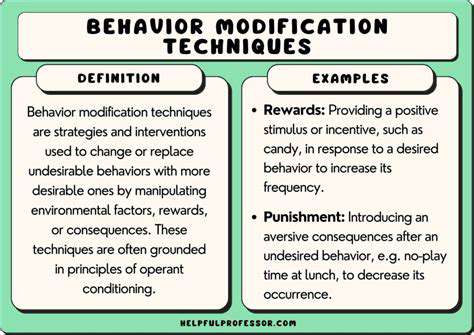
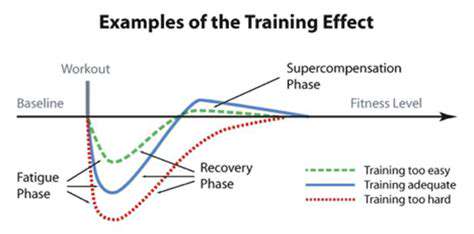

![HIIT Workout for Fat Loss [20 Minute Routine]](/static/images/26/2025-05/Exercises28Example293A.jpg)
